Filter by
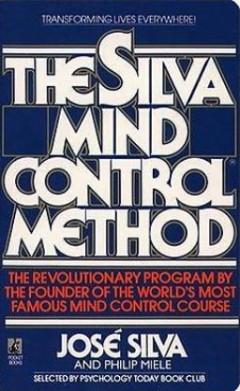
The Silva Mind Control Method
sed on the extraordinary 4-day course pioneered by Jose Silva, this life-transforming book shows how people have learned to overcome tension, bad habits, emotional insecurity, and even illness with the techniques of Mind Control.
- Edition
- -
- ISBN/ISSN
- 9780671739898
- Collation
- -
- Series Title
- -
- Call Number
- 1
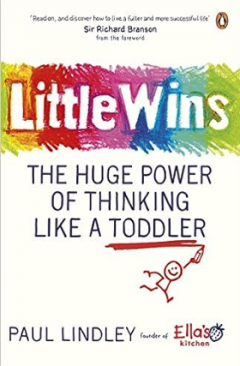
Little Wins: The Huge Power of Thinking Like a Toddler
here are some 400 million people worldwide whose creativity, imagination, and determination put the rest of us to shame. They are experts in their field, despite having no experience to speak of. Once, you were one of them, too. They are toddlers—and they hold the key to unlocking our creative potential as adults. Ella's Kitchen founder Paul Lindley reveals the nine characteristics and behavi…
- Edition
- -
- ISBN/ISSN
- 978-0241977941
- Collation
- -
- Series Title
- -
- Call Number
- 1

The Accomplished Writer: Observing, Judging, Reflecting
- Edition
- -
- ISBN/ISSN
- 9780130011329
- Collation
- -
- Series Title
- -
- Call Number
- 7
- Edition
- -
- ISBN/ISSN
- 9780130011329
- Collation
- -
- Series Title
- -
- Call Number
- 7
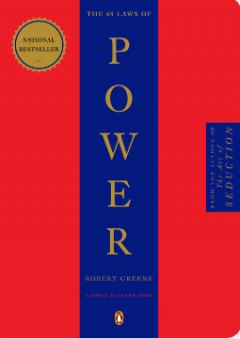
The 48 Laws of Power
Some laws teach the need for prudence (“Law 1: Never Outshine the Master”), others teach the value of confidence (“Law 28: Enter Action with Boldness”), and many recommend absolute self-preservation (“Law 15: Crush Your Enemy Totally”). Every law, though, has one thing in common: an interest in total domination. In a bold and arresting two-color package, The 48 Laws of Power is idea…
- Edition
- -
- ISBN/ISSN
- 9781598870923
- Collation
- -
- Series Title
- -
- Call Number
- 1

The Personal MBA: Master the Art of Business
Josh Kaufman founded PersonalMBA.com as an alternative to the business school boondoggle. His blog has introduced hundreds of thousands of readers to the best business books and most powerful business concepts of all time. Now, he shares the essentials of entrepreneurship, marketing, sales, negotiation, operations, productivity, systems design, and much more, in one comprehensive volume. The Pe…
- Edition
- -
- ISBN/ISSN
- 9781591843528
- Collation
- -
- Series Title
- -
- Call Number
- 6
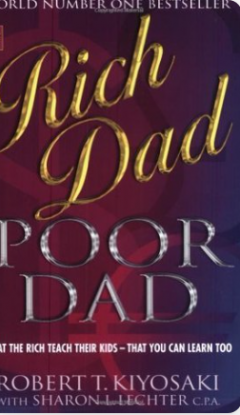
Rich Dad, Poor Dad
Rich Dad Poor Dad is Robert's story of growing up with two dads — his real father and the father of his best friend, his "rich dad" — and the ways in which both men shaped his thoughts about money and investing. The book explodes the myth that you need to earn a high income to be rich and explains the difference between working for money and having your money work for you.
- Edition
- -
- ISBN/ISSN
- 9781612680194
- Collation
- -
- Series Title
- -
- Call Number
- 1
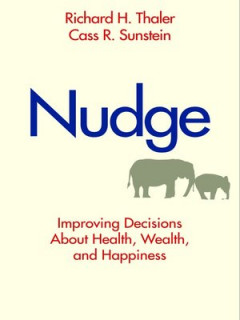
Nudge: Improving Decisions about health, wealth, and Happiness
Using dozens of eye-opening examples and drawing on decades of behavioral science research, Nobel Prize winner Richard H. Thaler and Harvard Law School professor Cass R. Sunstein show that no choice is ever presented to us in a neutral way, and that we are all susceptible to biases that can lead us to make bad decisions. But by knowing how people think, we can use sensible “choice architectur…
- Edition
- -
- ISBN/ISSN
- 9780300146813
- Collation
- -
- Series Title
- -
- Call Number
- 1
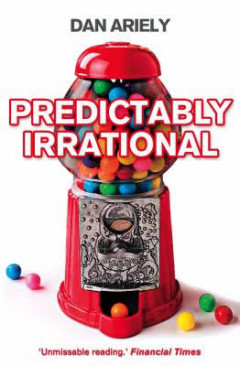
Predictably Irrational: The Hidden Forces that Shape Our decisions
, behavioural economist Dan Ariely cuts to the heart of our strange behaviour, demonstrating how irrationality often supplants rational thought and that the reason for this is embedded in the very structure of our minds.
- Edition
- -
- ISBN/ISSN
- 9780007256532
- Collation
- -
- Series Title
- -
- Call Number
- 1